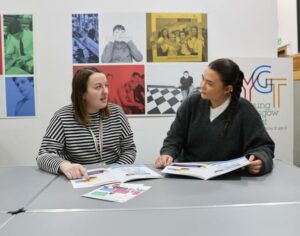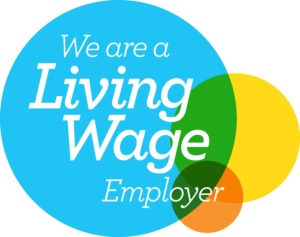Put relationships at the heart of recovery and fuse social and economic policies
Dr. Iain MacRitchie
Abstract
Mentoring charity MCR Pathways’ founder reflects on the radical impact lockdown has had on care-experienced and other disadvantaged young people in Scotland. In partnerships with local authorities and schools, the MCR model is helping implement a long-term system and cultural change within Scottish education, to ensure an equality of education outcomes, job choices and subsequent life chances. Following school closures caused by the COVID-19 pandemic, the charity surveyed more than 1,000 young people to ascertain the impact on their wellbeing, ability to learn and thoughts on returning to school and their futures. The article explores the challenges highlighted by the research and the solutions needed to address those concerns. With young people driving each conclusion, the author proposes his recommendations for recovery, equality and growth and how those affected need to be central to all decisions. Not just for social policy but in a required fusing with economic policy.
The impact of school closures
I’ve often considered who knows better: a trained professional without lived experience, or someone at the receiving end of policies and decisions? Where will we find solutions to build back better and avoid losing a generation of young people?
On 23 March 2020, schools shut in Scotland. For many young people, this meant a dramatic loss of routine and structure, the closing of their only safe haven and a community hub. Thousands of young people have been in limbo since, without voice or ability to influence what happens next. The professionals gather, the acronyms increase, the committee numbers expand, and we burn time and resources. There is no doubt that people are committed, but more than often, those directly impacted are excluded. Do we know the reason why only one per cent of our most disadvantaged young people attended school during lockdown despite being able and encouraged to, or why the vast majority did no schoolwork at home?
Since those closures, MCR Pathways has worked hard to engage and provide virtual mentoring support to the country’s most disadvantaged young people through lockdown. By July we reached 1,936 school students interacting with staff and mentors on a rapidly developed virtual mentoring platform. We wanted to reach more but the loss of relationships, connections and structure led to much isolation and detachment. Engaging so many young people was a major achievement, but equally an exceptionally challenging one. The devastation caused by loss of learning, compounded by loss of confidence and self-belief is clear. We had to gather comprehensive feedback to ensure that whatever recovery policies and decisions were taken included their voice.
MCR Pathways’ lockdown survey
A total of 1,347 young people (aged 13 -18) from city, town, rural and island settings in Scotland participated in a lockdown survey, which ran for six weeks during June and July 2020. More than 1,000 young people provided detailed and comprehensive responses to questions on their mental wellbeing, home learning, expectations for the future, and support needed for the return to education.
Those surveyed are Scotland’s most disadvantaged young people for whom lockdown and home education were extremely challenging. They included 56.1% who are care-experienced and are either currently in or have previously been in the care system, as well as 43.9% who are young people on the edges of the care system experiencing various forms of disadvantage.
With relationships and trust at the heart of MCR’s support, the young people trusted us to share and document their experiences. Some have gone to great lengths to do this, sharing personal and meaningful insights.
The results left us in no doubt that to avoid losing a generation and further fuelling the attainment crisis, we need to listen very closely to the young people and do what they need us to do. Their feedback is crystal clear.
What Young People Said
Young people told us they need to be in school full time and it’s clear that the most vulnerable and disadvantaged need supportive relationships as a central part of all recovery plans. It was heartbreaking to hear young people saying they have lost all social interaction abilities, that they now feel sad most of the time and can’t get out of bed as they have nothing to look forward to and no-one to help or encourage them.
Critically with 82.2% stating they want a mentor to help them, an overwhelming number of young people believe MCR mentoring is vital to their success. MCR wants every care experienced and disadvantaged young person to have the relationship focused support of an MCR mentor and be engaged in our Young Talent programme.
Alarmingly, almost 70% of young people surveyed were unable to do any schoolwork during lockdown. Half of these said it was too hard to understand, over 40% said they were too stressed and significantly, one in four had other caring responsibilities that took over.
Highlighting major mental wellbeing issues, two thirds of young people (66.8%) were feeling low, anxious and stressed. Overwhelmingly, almost 90% of young people said their sleeping patterns have dramatically altered with over a quarter experiencing significantly disturbed sleep.
MCR has called for schools to give equal focus on young people’s mental wellbeing as well as academic education for the first few months after returning to school. Supporting almost 2,500 care experienced and disadvantaged young people every week, MCR has advocated that school recovery curricula should focus on wellbeing, healthy sleep, exercise and eating habits, and re-establishment of relationships with teachers and peers. Critically, with 75% asking for more one-to-one time with teachers, additional capacity and relationship time needs to be built in to ensure the most disadvantaged do not become the lost COVID generation.
The insight is invaluable to help recovery plans focus on what matters. One example of what works for the young people, and a surprise to the adult view, is how important printed materials are to home education. 42.1% of young people responding to our survey said they want them as part of home learning plans in the event of further lockdowns. Some 20% of our most disadvantaged students don’t have the space at home to work, and 15% still don’t have the necessary IT kit or internet access. Many are trying unsuccessfully to learn using only their phones. This all culminates in our most disadvantaged facing multiple and continuous barriers despite being keen to engage in learning. We must not allow the increasing inequality and a rapidly widening attainment gap to continue.
Schools are Safe Havens
Schools are for much more than education. They are safe havens, community spaces where positive relationships, hope and aspiration are nurtured. If there are further lockdown restrictions, we must find creative ways and alternative buildings, if necessary, to continue full time education for those that need it most.
We may all be in the same COVID storm, but we are in very different boats. Some are cruising through, but sadly many are holed below the waterline and others are entirely unseaworthy. The return of calmer waters brings a once in a lifetime opportunity to rebuild back better. Let’s be very clear about what we need to focus on and see through. The absolute priority is a swift economic recovery, but one where everyone matters, actively participates and directly benefits. It makes social sense but also makes complete financial sense. This is not only possible, but vital.
We need a relationship-first approach driven by three governing principles: social inclusion, social mobility and social contribution. Economic success that will drive social benefits and vice versa. We need them fused, as two sides of the same coin. This is the way to establish a fairer economy, in fact, not rhetoric. It is not a pipedream. We already have the knowledge, examples and expertise to deliver.
The COVID-19 crisis has come at an extraordinary economic cost. However, it has shown that we can deliver change based on social cause and need. Hopefully, we can ultimately agree to a 100-year term for the COVID debt, but let’s face up to the fact that it will have to be repaid. As an entrepreneur, come social entrepreneur, I know we have to generate wealth before we can spend it. We need a successful economy as an absolute priority.
As we emerge from the pandemic, the greatest challenge is to not repeat our mistakes and rebuild inequality and its destructive power. We cannot swing from one extreme to another, from austerity to free spending to bankruptcy, leaving our kids to pick up the bill. We can move beyond polarising party politics and devote our energy to building consensus and a collective commitment to these three simple principles.
Three governing principles of social inclusion, social mobility and social contribution
Social inclusion means everyone has a basic right to nutrition, a home, internet access and health and well being. This is not idealistic or about adding to our national debt. The cost of failure is far more expensive than prevention. It needs investment, but this investment will generate cost savings immediately and over the long term. We talk about early intervention and have models demonstrating significant savings. What we have struggled to accept or deal with is that the savings come from different institutions, departments and budgets. Our systems have created conflicts of interest which slow development and kill progression. This is not a criticism; it is just a fact.
Any change such as this requires leadership, focus and a measured outcome. Effective leadership requires active listening skills, empathy and trusting relationships. Inclusion is not about one party doing what they think is best. It is about engaging, listening, creating choices and teamwork. We have more than enough evidence of what works. With social inclusion as first base it gives us the ability to build the second in social mobility.
Social mobility means an equality of education outcomes, job choices, and subsequent life chances is social mobility in its truest form. Blind to colour, class and gender. It isn’t about one group or certain postcodes achieving at the expense of others. It’s simply about each individual realising their potential irrespective of their circumstances. A level playing field so that everyone has the opportunity to be the best that they can be.
We need a relationship-first approach driven by three governing principles: social inclusion, social mobility and social contribution. Economic success that will drive social benefits and vice versa. We need them fused, as two sides of the same coin. This is the way to establish a fairer economy, in fact, not rhetoric. It is not a pipedream. We already have the knowledge, examples and expertise to deliver.
If deprivation or lack of resources is a constraint, then we provide the relationships, support and social capital to ensure it isn’t. This simple principle must empower our education systems, institutions, and all sections of society. MCR Pathways has a proven and inexpensive model that ensures this is the case. Mentoring the most disadvantaged young people through school, in partnership with teachers, local authorities and government is transformational and closes the attainment gap. When MCR becomes fully embedded and publicly owned, we will have a process to deliver social mobility at scale. A platform to build meaningful and sustainable social contributions.
Social contribution is where organisations demonstrate their commitment, but in a manner where they also make significant gains. A contribution that drives wideranging corporate benefits for sustainability and is not based on fashion. This is the next generation of Corporate Social Responsibility (CSR). Indeed, an increasing number of businesses are seeing the benefits of aligning their strategy to social purpose. Purpose driven strategy has already been shown to drive share price and brand value. It is a two-way process where both parties benefit, giver and receiver.
MCR mentoring is a perfect illustration of this in practice: the mentor more than often gains as much benefit as the mentee. This directly translates into benefit for employers as increased employee engagement drives improved productivity and profitability – both by over 20% (evidenced in research from 263 studies covering 49 industries and 192 organisations in 34 countries). Focused, local community based volunteering is the most potent way of increasing employee engagement. The gains in mental health and wellbeing are profound.
‘Soconomics’ a new definition to rebuild back better
Each of the three principles feeds the other and becomes circular and selfsustaining. This is not new or revolutionary. We already have the evidence and examples. It is just about leadership with the motivation, commitment and resilience to make it happen. The future should combine social causes and benefits with economic drive and prosperity. It makes complete financial sense. Let’s call it ‘soconomics’ a new definition for the required combination of social and economic policy.
It is now crystal clear how to help those in need. We have asked the young people and they have responded. Economic recovery is an urgent priority to have the financial choice. It should be first and last on every government’s agenda. There is no such thing as limitless borrowing. But economic success must be fused with social inclusion, social mobility and the expectations of making a social contribution.
What we do for young people means listening first to their feedback. They must fully participate, be listened to and respected, have our empathy not sympathy, and benefit from professional support that is personal, and relationship based. Our most disadvantaged need full-time school, routine and structure, even if there is a second lockdown. I’m sure that by working together, we can guarantee this and focus on both a strong and fair recovery.

About the Author:
Dr. Iain MacRitchie
Professor Iain MacRitchie is a Scottish entrepreneur, philanthropist and visiting professor of University of Strathclyde. He has transformed 18 organisations – from 50 to 5,000 employees – and has acted as trusted adviser to over 100 others. An expert in leading large-scale organisational change, Iain has a track record in helping develop teams and individuals to realise their full potential.
Iain is founder and CEO of MCR Pathways and a visiting professor at the University of Strathclyde. After setting up MCR Pathways in 2007, Iain now volunteers fulltime to lead the revolutionary mentoring and talent development programme. The goal is to establish MCR as a national education model to ensure that all care experienced and disadvantaged young people are defined by their talents and potential, never their circumstances.




